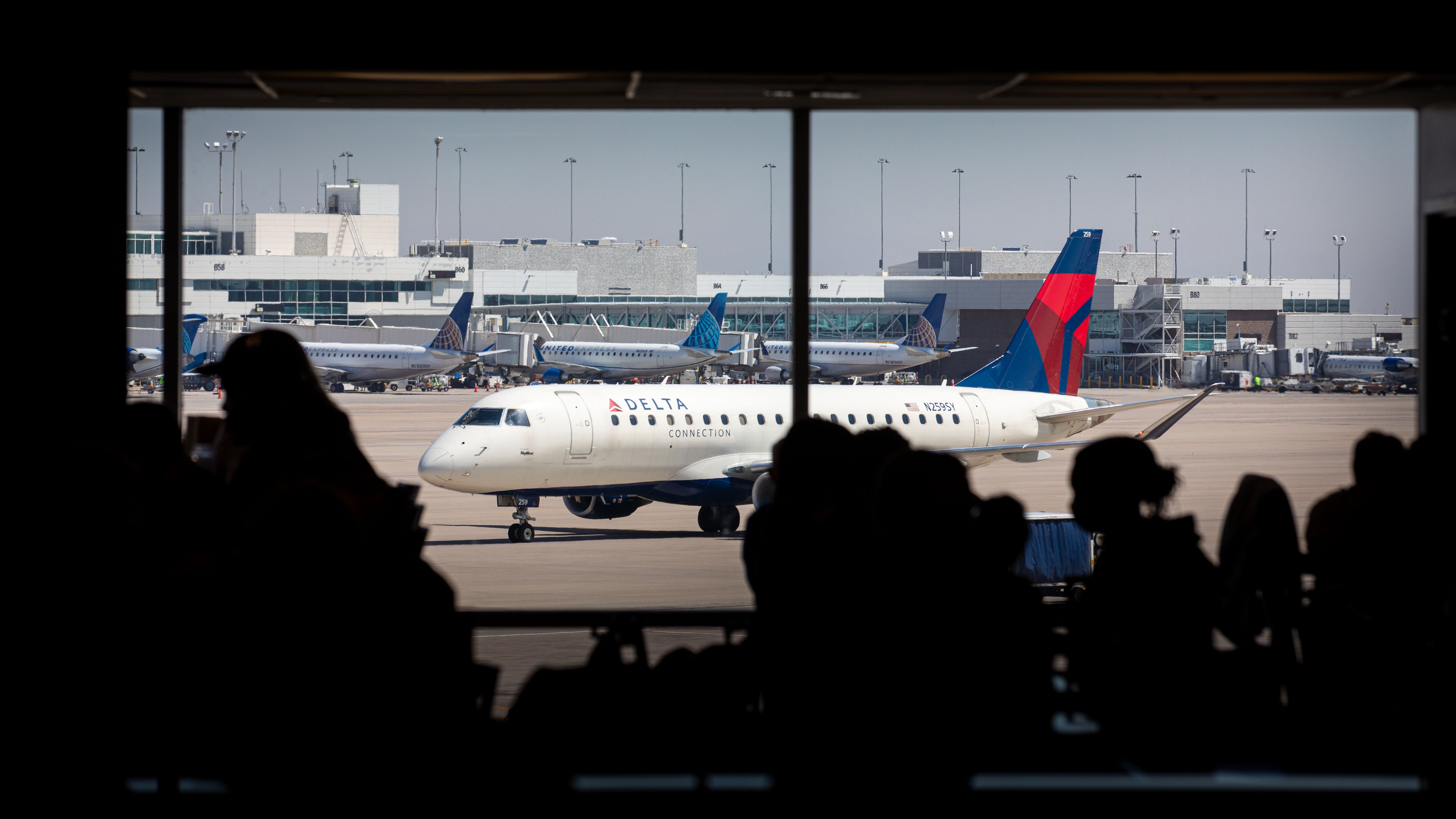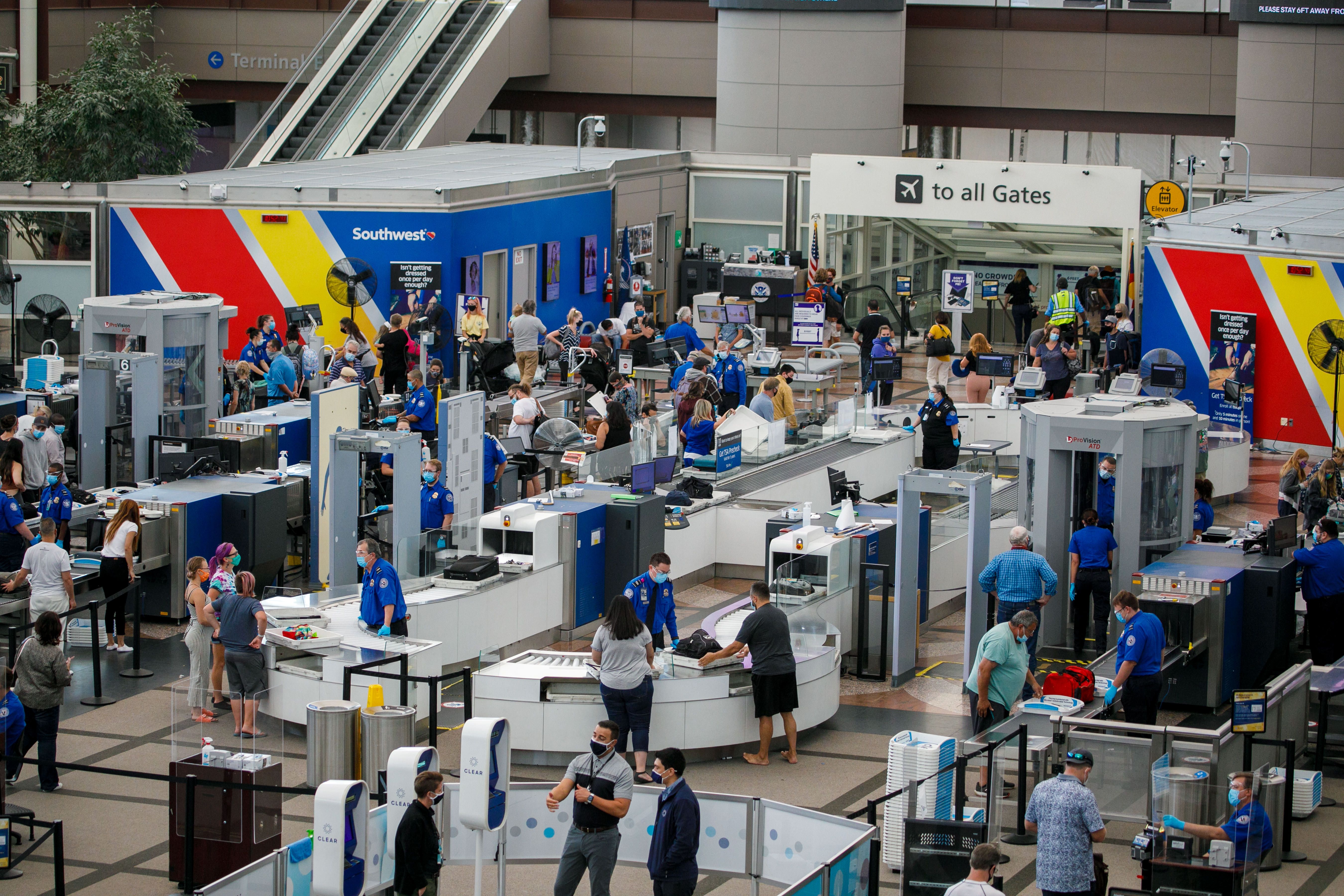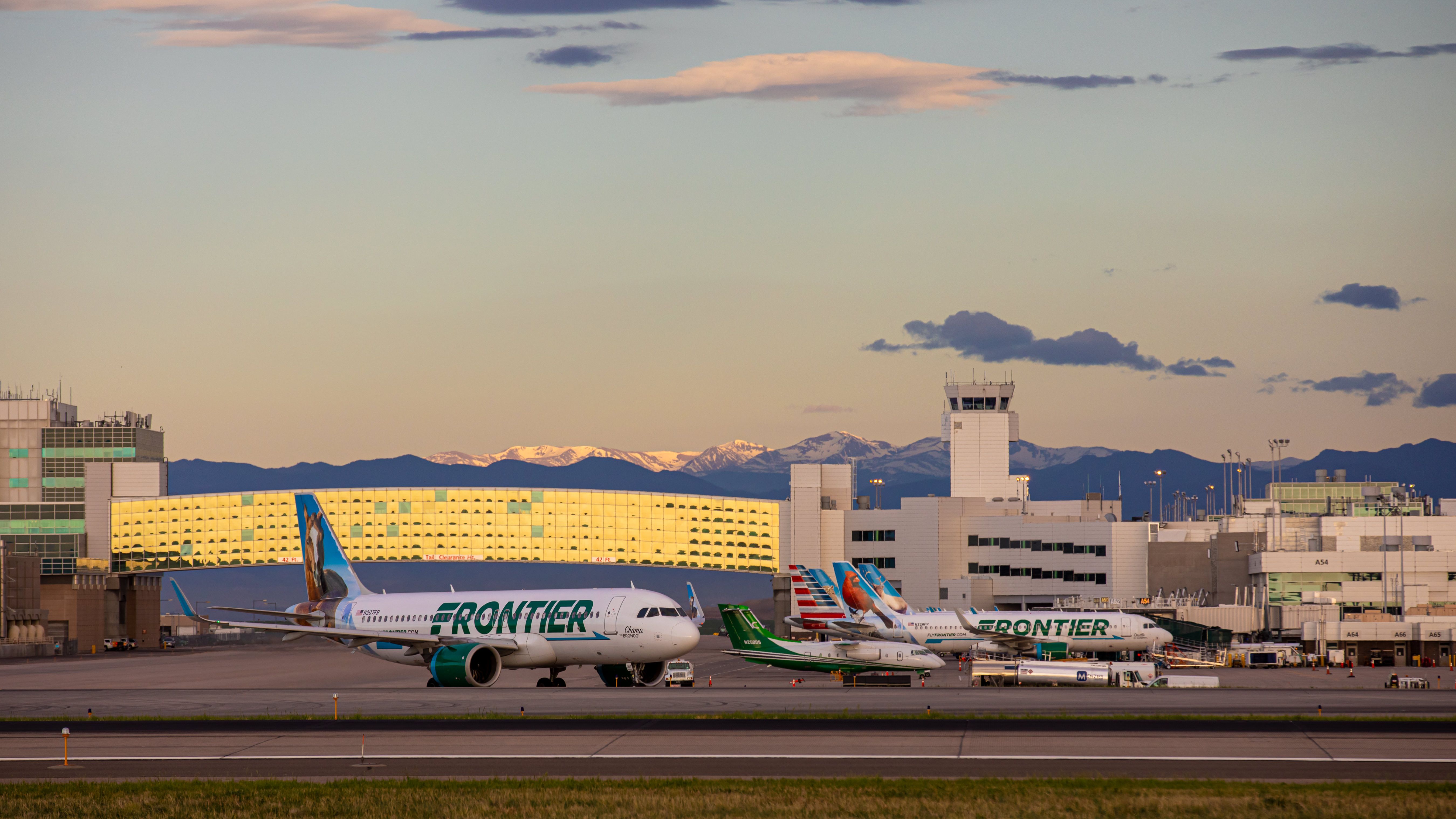More than 8.7 million people were screened at US airports over the Labor Day weekend, according to the Transportation Security Administration (TSA). It was also the first holiday weekend that exceeded screening volume compared to 2019, when the TSA screened 8.24 million travelers. This year, the TSA screened nearly half a million more people at approximately 8.76 million.
On Friday, it was also the heaviest travel day ever recorded since 2019, as the TSA screened 2.48 million passengers. And throughout the long weekend, 94.9% of TSA PreCheck passengers waited less than 5 minutes. About 91.6% of those passengers in standard screening lanes waited less than 15 minutes.
Interim Administrator David Pekoske said:
“TSA’s highly trained and dedicated workforce facilitated secure travel for millions of passengers during the busy summer travel season with few checkpoint disruptions. We were also able to continue the deployment of new technologies that facilitate stronger identity verification procedures and enhanced security screening for carry-on bags.”
Quite a violent weekend
While the number of travelers screened reassured the recovery process within the aviation industry, the alarming numbers of illegal items confiscated through security were anything but. During the weekend, Transportation Security Officers intercepted 67 firearms and prevented them from entering aircraft passenger cabins. On average, TSA confiscated about 17 firearms daily at checkpoints since the beginning of the year.
One example was a New Jersey woman recently arrested on weapons charges after TSA officers at Newark Liberty International Airport found a loaded handgun hidden behind the lining of her suitcase. The confiscated gun was the 11th one caught at Newark Airport, and other cases have included knives, swords, and even empty grenades.
According to the TSA, an estimated 87% of the confiscated firearms at security checkpoints nationwide were loaded. And if this pace continues, TSA anticipates firearm catches at checkpoints will eclipse the current full year-record of 5,972 firearms intercepted at the nation’s checkpoints in 2021.
An end to a post-pandemic summer
Though the US aviation industry ended summer smoothly, the summer travel season did not meet initial expectations as US carriers trimmed capacities by more than 15%. Travelers were initially greeted by exhaustingly long queues and frustrating cancelations and delays. In the first six months, almost 25% of US carriers' domestic flights were delayed, and over 3% were canceled.
The percentages might seem minor, but this represents thousands of flights, and the number of passengers affected is multiplied even more. And though TSA screenings went by relatively well, hundreds of flights were yet again canceled or delayed during the Labor Day weekend, prompting White House press secretary Karine Jean-Pierre to emphasize:
"Americans have experienced an unacceptable level of flight experiences, delays, and cancelations this year due to airline issues."
However, airlines argued back that they were trying their hardest as they struggled to adjust staffing models to account for their workforce shortfalls and the time required to hire and train new staff. The airlines also argued that external factors such as weather conditions, industrial walkouts from air traffic control, or airport staff were beyond their control and impacted flight operations were the inevitable result.
A hopeful winter
Taking the summer travel season as a significant learning step, airlines are preparing for the winter peak season, embracing recent changes to ensure summer's mistakes will hopefully not be repeated. Passengers are also hoping for smoother travels during the winter, and the odds might be in their favor as the change begins with the US Transportation Department (DOT) insisting that major US airlines start making adequate changes to their customer service policies.
With airlines being required to initiate the provision of meal vouchers and overnight stays for affected passengers for cancelations and delays within their control, US carriers might likely think twice before suddenly trimming their announced schedules. Considering how chaotic summer was, perhaps winter might be calmer as DOT highlights more changes to come.
Stay informed: Sign up for our daily and weekly aviation news digests.



